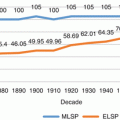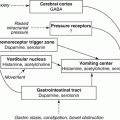© Springer International Publishing Switzerland 2017
Lawrence Berk (ed.)Dying and Death in Oncology10.1007/978-3-319-41861-2_66. Spiritual Care: An Essential Aspect of Cancer Care
(1)
The Graduate School of The College of New Rochelle, New Rochelle, NY, USA
(2)
The Hospice Foundation of America, Washington, DC, USA
6.1 Introduction
As an enduring gift of the hospice movement, led by openly spiritual Dame Cicely Saunders, spirituality re-emerged as a critical aspect of medical care. In recent years, varied initiatives such as the National Consensus Project emphasizing the value of spirituality as an aspect of palliative care, The ACE (Achieving Clinical Excellence) project offering training in palliative care to chaplains and psychosocial professionals, and The Hospice Foundation of America’s Teleconference on Spirituality at the End-of-Life all stressed the importance of spiritual care in death and bereavement.
Spiritual care is particularly important in cancer care – as cancer has long been viewed as a dreaded disease – one that carries, in many cases, a sense of moral opprobrium and spiritual abandonment. For much of its long history, cancer was an unspoken disease – the big “C” – a fearful disease dreaded for its mysterious causation slow and painful, sometimes disfiguring progression. Even now with far better treatment, diagnosis, and survival rates, cancer still is viewed as a spiritual curse. And it still carries a sense, at least in some sites of the disease, of opprobrium. Tell someone of another’s death by lung cancer and a likely question is “how long did the victim smoke?” A question that implies the individual with the disease is less deserving of sympathy or support.
This chapter explores the nature of spirituality both during the course of illness, and should death occur, in bereavement. It begins by defining spirituality and exploring the ways that spirituality may affect health care. It then addresses the spiritual issues that may be experienced throughout the course of an illness – from diagnosis to chronic care, recovery, or death as well as the spiritual issues that arise in grief. Finally, the chapter focuses on both spiritual assessment and intervention.
6.2 Defining Spirituality
Religion and spirituality are often elusive concepts that are difficult to define and differentiate. A Consensus Conference funded by the Archstone Foundation brought together scholars and practitioners from a broad range of fields and disciplines in 2009. The agreed upon definition emerging from the Consensus Conference was that: Spirituality is the aspect of humanity that refers to the ways that individuals seek and express meaning and purpose and the way they experience their connectedness to the moment, to self, to others, to nature, and to the significant or sacred (Puchalski et al. 2009, p. 887). The International Workgroup on Dying, Death and Bereavement defines spirituality as “concerned with the transcendental, inspirational, and existential way to live one’s life” (1990, p. 75). I have always preferred Miller’s far more poetic definition:
Spirituality relates to our souls. It involves the deep inner essence of who we are. It is an openness to the possibility that the soul within each of us is somehow related to the Soul of all that is. Spirituality is what happens to us that is so memorable that we cannot forget it, and yet we find it hard to talk about because words fail to describe it. Spirituality is the act of looking for meaning in the very deepest sense; and looking for it in a way that is most authentically ours (1994).
To Miller, spirituality is inherently individual, personal, and eclectic. Religion, however, is more collective. Religion is a belief shared within a group of people. Miller again offers a lyrical perspective:
Now religion works in a very different way. While spirituality is very personal, religion is more communal. In fact, if you take the words back to its origins, “religion means that which binds together,” “that which ties things into a package.” Religion has to do with collecting and consolidating and unifying. Religion says, “Here are special words that are meant to be passed on. Take them to heart.” Religion says, “Here is a set of beliefs that form a coherent whole. Take them as your own.” Religion says, “Here are people for you to revere and historical events for you to recall. Remember them.” Religion says, “Here is a way for you to act when you come together as a group, and here’s a way to behave when you’re apart” (1994).
Thus while spirituality is very personal, a person’s spirituality may very well be shaped by an individual’s religious beliefs. Yet, because of the individual nature of spirituality, religious affiliation is not likely to be the sole determinant of spiritual beliefs. Often developmental outlooks, personal experiences, and cultural perspectives will join with religious beliefs in shaping an individual’s spirituality.
6.3 Spirituality, Religion, and Health
There is research that religion and spirituality can both facilitate and complicate responses to life-threatening illness and grief. Here, both terms are used together as the ways researchers define spirituality and religion differ. Much of this research supports the spirituality and religion can have positive roles in assisting individuals who struggle with life-threatening illness or grief.
Religion and spirituality can offer a sense of meaning in the illness that facilitates coping (Siegel and Schrimshaw 2002) as well as a sense of resilience and hope (Pentz 2005). Often the diagnosis of a life-threatening illness challenges an individual’s assumptive world as the person struggles with attempting to make sense of the illness. Later in the illness, individuals may seek to make sense of their suffering, their death, or their life. Throughout this existential endeavor, religious and spiritual perspectives offer meanings. Religious and spiritual perspectives may reassure persons with life-threatening illness that their illness is part of a larger plan or that the illness experience may offer lessons to self or others, or that suffering may offer a cosmic connection to humankind. Even as an individual faces death, there is some evidence that religious and spiritual beliefs may minimize fear and uncertainty (Siegel and Schrimshaw 2002).
Religion and spirituality enhance a sense connection on a number of levels. There can be a sense that a God or some Higher Power will sustain and protect. This connection may be more tangible as well. Many individuals may benefit from the social support available through the ministries of a chaplain, clergy, spiritual advisor, ministry team, or even within the larger faith community. The sense that one is not alone and others are caring, visiting, and praying seems to provide benefit (Siegel and Schrimshaw 2002; Townsend et al. 2002).
Religious and spiritual practices and beliefs can enhance health. Most spiritual belief systems suggest either abstinence or moderation in behaviors such as alcohol or tobacco use. Spiritual and religious beliefs also may enhance coping by encouraging self-esteem as most religious and spiritual systems emphasize an individual’s inherent worth. This belief in a loving and forgiving deity – or the intrinsic value of an individual may be especially important in a life-threatening illness or in grief when self-blame may loom large and self-acceptance is in jeopardy. There is also some speculation that spiritual and religious beliefs may have physiological benefits such as lowering blood pressure or enhancing immune function though here the research has shown some inconsistency (Dane 2000; Sephton et al. 2001; Miller and Thoresen 2003; Lin and Bauer-Wu 2003; Olive 2004; Stefanek et al. 2005).
Religious and spiritual beliefs also may influence an individual’s sense of control. In a time of life-threatening illness, an individual may feel that they have little or no control. Religious and spiritual beliefs reaffirm a sense of personal control. Individuals now have a sense of interpretive control – the ability to find meaning or benefit from the experience, or vicarious control – leaving the illness in the hands of a Higher Power. In some cases, the control may be of a predictive nature; perhaps believing that God will cure them or be with them throughout this experience.
Yet, this sense of control also demonstrates the ways that religious and spiritual beliefs may complicate the response to a life-threatening illness or grief. For example, a person with life-threatening illness may be convinced that he or she may be cured by a divine intervention. If death ensues, such an individual or other family members may become immobilized, unrealistic in decisions, or even despondent. In other cases, the illness may be viewed as a punishment for prior acts.
Certain religious or spiritual beliefs may serve to increase rather than decrease death anxiety or complicate grief. For example, fears over divine judgment or uncertainty in an afterlife may not offer comfort to a dying person (Neimeyer 1994). Moreover, religious and spiritual perspectives can sometimes conflict with medical practices and advice. For example, some spiritual systems such as Christian Science may eschew any medical treatment while others such as the Jehovah Witnesses may prohibit certain medical practices such as blood transfusions or blood-based therapies. In other cases, a fatalistic spirituality may inhibit health-seeking behaviors or adherence to a medical regimen. Pargement et al. (2004) found in a longitudinal study that certain types of religious coping such as seeking spiritual support or believing in a benevolent God were related with better health while other spiritual coping behaviors and beliefs such as a perspective of a punishing God or religious discontent were predictive of declines in health.
Religious and spiritual beliefs also may be evident in reactions to illness. For example, anger could be directed toward God. There may be anger that one has the disease or that the disease has come at an inopportune or unfair time. Guilt may be clouded by a moral guilt – a belief that this illness is a punishment for some transgression. Fear and anxiety, as mentioned earlier, can also have a religious or spiritual root, as one may fear the wrath of God in this world or the next. There may even be an existential sense of abandonment – a sense that one is facing the crisis alone, alienated from God. In all of these cases, religious and spiritual beliefs may intertwine with psychological and affective reactions to the illness.
6.4 Spiritual Tasks in Life-Threatening Illness
Throughout the illness, an individual may have to cope with distinctly spiritual tasks. In an earlier work (Doka 1993a, b, 2014), I proposed, building on the work of both Weisman (1980) and Pattison (1978), that life-threatening illness can best be viewed as a series of phases. These phases are:
The Prediagnostic Phase – This phase is generally characterized as the period prior diagnosis – generally a health-seeking phase. In cancer care, this is likely to come in one two ways. Often, it may result from a patient seeking evaluation of a troublesome symptom such as unexpected bleeding, some lump, or perhaps a new mole. In other cases, it may merely be a routine physical or screening that leads to a cancer diagnosis. Retrospectively analyzed, prediagnostic behavior can indicate much about the patient’s style of coping. For example, did the patient suspect cancer? How long did the patient delay before seeking medical attention? Did the patient self-diagnose? Prior to seeking medical examination, did the patient engage in any self-treatments or spiritual coping (praying, etc.)? Even in routine examinations, it is always worthwhile to examine the patient’s concerns, anxieties, and expectations.
Stay updated, free articles. Join our Telegram channel

Full access? Get Clinical Tree






